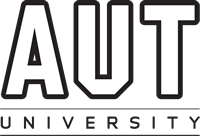Assoc Prof Lindsey White, Dr B Pardesi
No more applications being accepted
Funded PhD Project (Students Worldwide)
About the Project
The world’s increasing demand for food generates a powerful economic imperative for innovation in food production technology. Our novel system was discovered through our previous research in New Zealand, and has the potential to create several new products for the global food supply chain. Our research revealed that (a) symbiotic microbes in the hindgut of NZ seaweed-eating fishes convert seaweed and atmospheric nitrogen into compounds of nutritional value to fish, (b) these hindgut microbes provide an important source of dietary protein to the fish, and (c) these novel organisms can be grown in culture. Culturing these microbial communities to bioconvert abundant and sustainable seaweeds would thus address four global problems: (a) the economic and environmental costs of feeding capture fish to cultured fish, (b) the unsuitability of many terrestrial protein sources for aquaculture feeds due to the lack of critical nutrients and the presence of compounds inhibitory to digestion, (c) current roadblocks to using abundant seaweed biomass to produce aquaculture feeds, and (d) the growing demand for sustainable agricultural fertiliser. This is a completely novel idea on an international level, as we have only just discovered and begun to understand the microbial and physiological processes in NZ fish underpinning it.
Over the next five years our MBIE funded programme develops and broadens this research into a number of economic opportunities for NZ and beyond. These will be accomplished by developing the culture technology and methodology to maximize the production of desired fermentation end products; single cell protein for animal and aquaculture feeds, organic fertilisers that will decrease the need for more harmful forms currently used and as a food source for black soldier fly larvae, which have growing global importance as feed components for aquaculture and poultry. We have developed a new culture media to grow previously unculturable bacteria from the hindgut of seaweed eating fish. This ability rests on a particular extract, but thus far we have not identified which parts or compounds within the extract are the responsible growth factors. The successful PhD candidate will be responsible for determining exactly what the active parts of our extract are, isolating these compounds and determining how wide spread these are in other potential sources. These findings could lead to significant IP. The IP generated in this project will be owned by the host institution to allow for efficient commercialisation of that IP, while the successful candidate will share in the benefits of any such successful commercialisation that comes from this project.
The purpose of this scholarship is to support the research of one PhD candidate to investigate factors contributing to the conditions necessary to culture anaerobic bacteria from the hindgut of seaweed eating fish. This student will be fully funded as part of an Endeavour Fund grant from the Ministry of Business, Employment and Innovation (MBIE). The successful candidate will have skills in both analytical chemistry and microbiology. It would be particularly helpful if the candidate had actual microbial culturing experience and even more advantageous if they had cultured anaerobes
Funding Notes
This Scholarship will pay for three years of fees and NZ$27,000 tax free stipend per annum for up to three years.
ELIGIBILITY CRITERIA can be found on the AUT Scholarships website
https://www.aut.ac.nz/study/fees-and-scholarships/scholarships-and-awards-at-aut/scholarships-database/detailpage?detailCode=501293&sessionID=29722689&sourceIP=&X_FORWARDED_FOR=

 Continue with Facebook
Continue with Facebook

